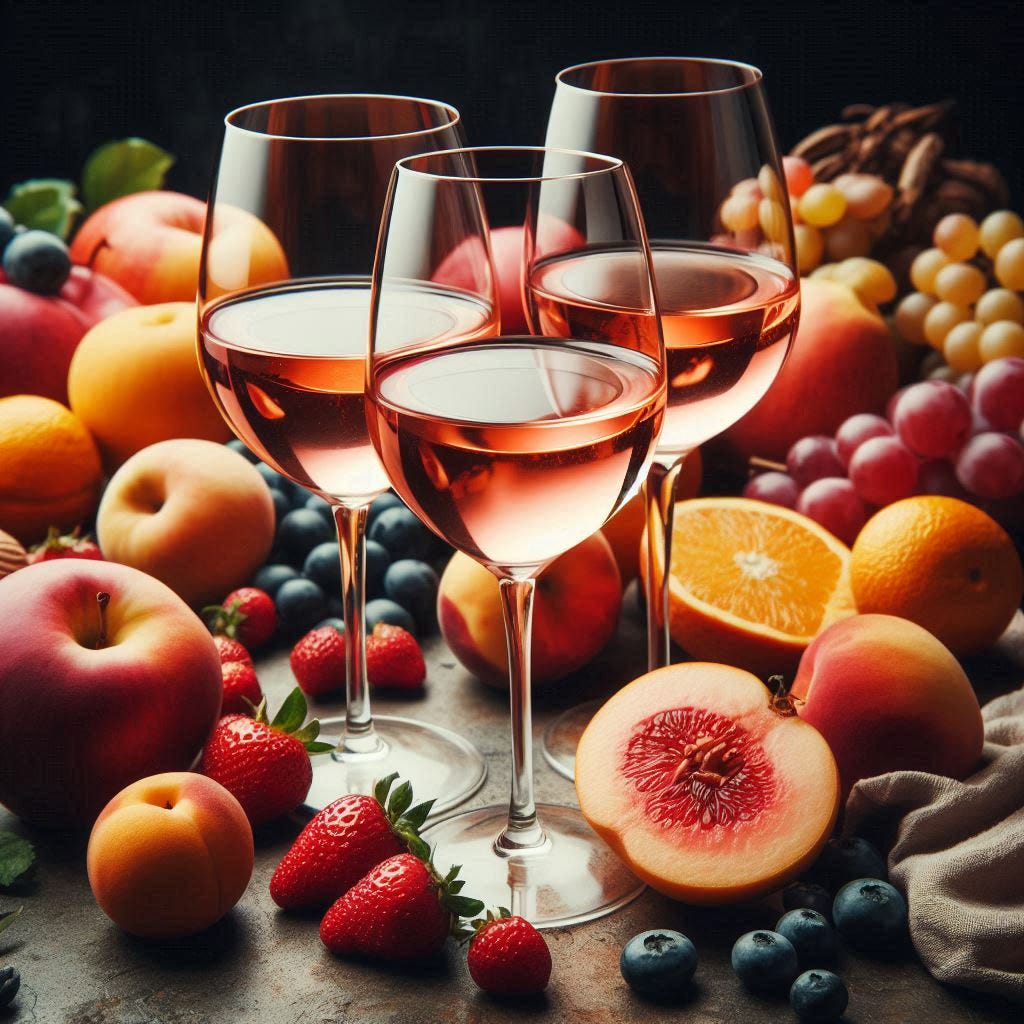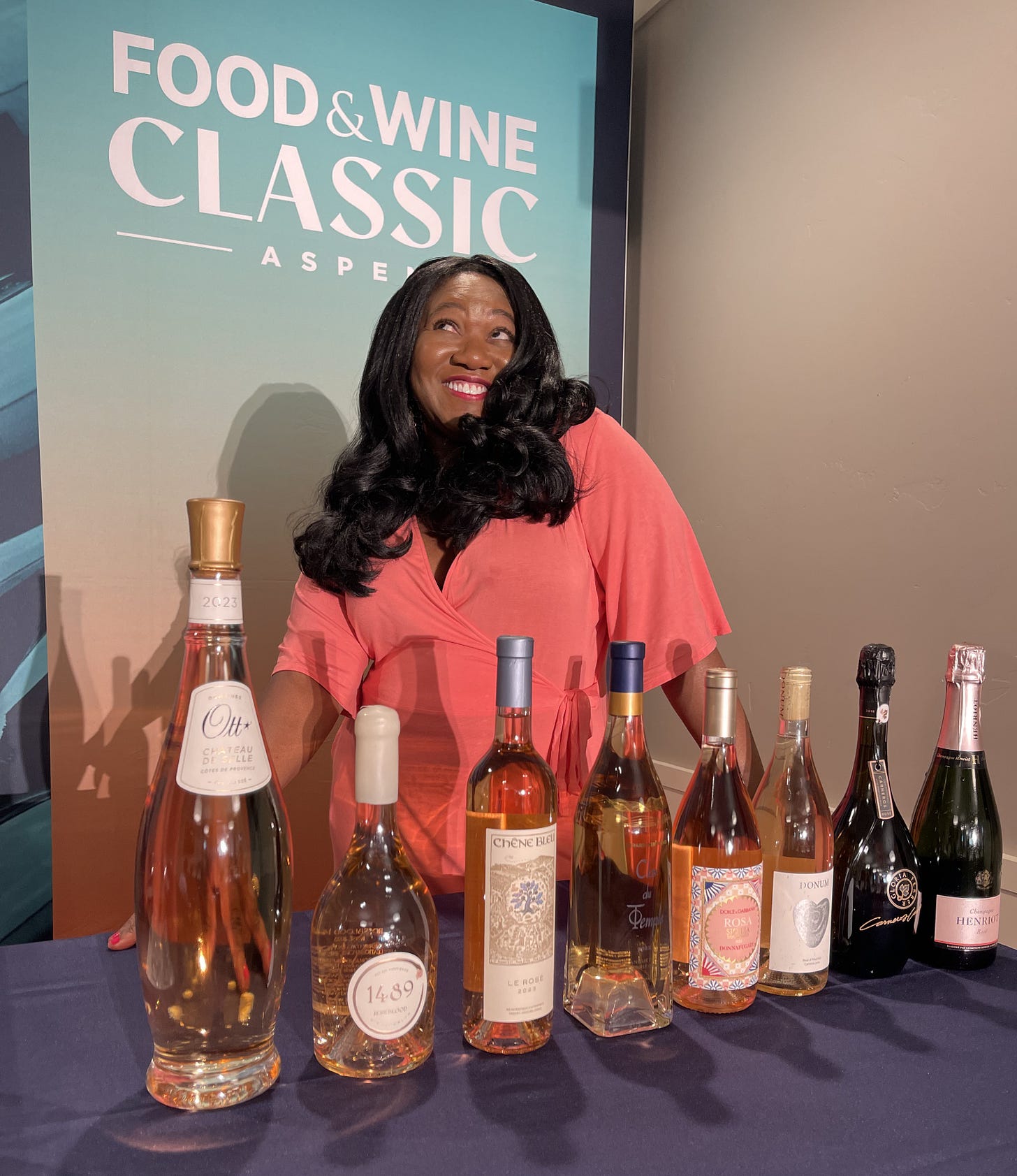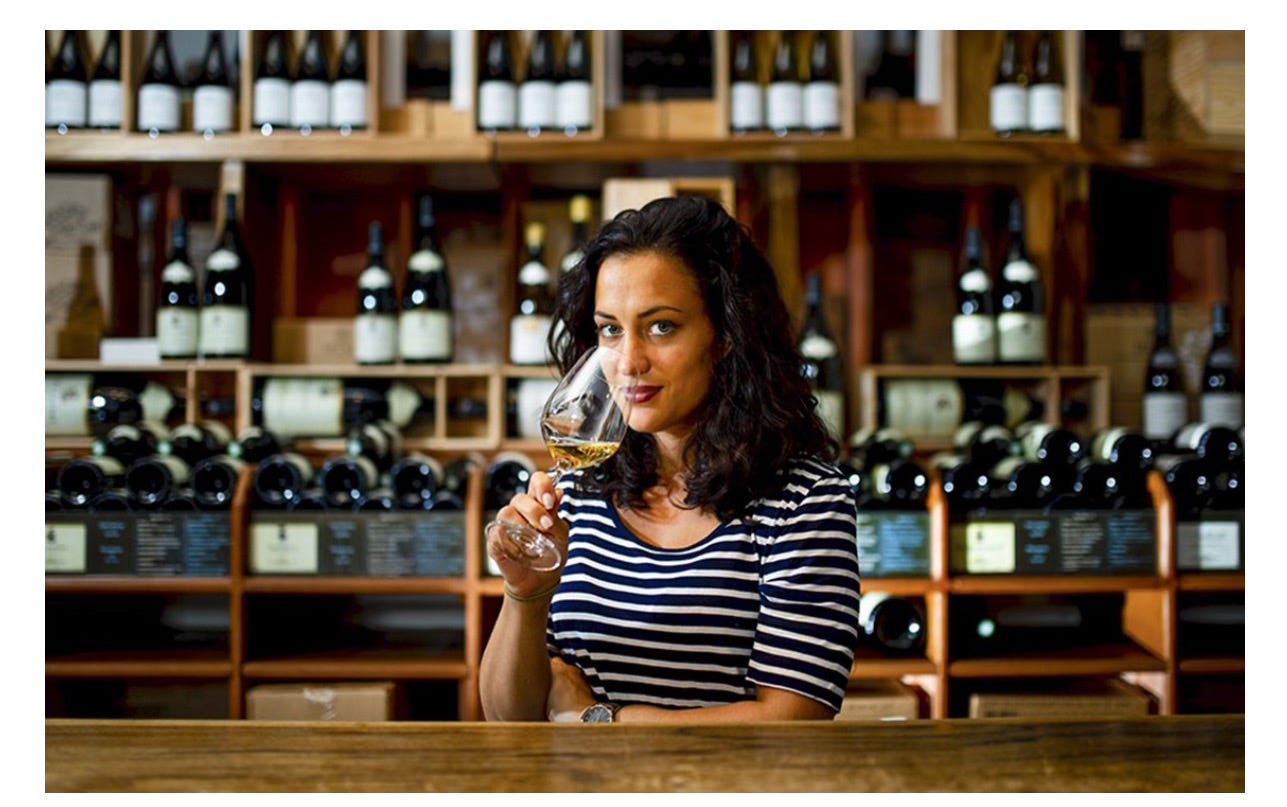The Thing About Tasting Notes
plus three fantastic rosé wines from Domaine Grosbois, Mathilde Chapoutier, and Weis Vineyards
Mamma mia, where does the time go? Summer is flying by. After weeks of non-stop travel, I’m relishing the opportunity to wind down and relax. And on these sticky and sweaty New York days, I find myself sipping a lot of rosé. Forgive me for sounding like a broken record, but here I go again: Rosé can and should be enjoyed all year-long, but there’s no denying that pretty pink wines are a perfect match with the summer season.
In June, at the Food & Wine Classic in Aspen, I led the Rosé Gets a Glow Up: The World of Luxe Pink Wines beverage seminar. The seminar featured eight elegant pink wines from around the world: Domaines Ott Château de Selle Côtes de Provence Rosé 2023 ($65), Château d'Estoublon 1489 Roseblood 2023 Provence ($90), Chêne Bleu Le Rosé 2023 (Southern Rhône, $45), Gérard Bertrand Clos du Temple 2022 (Languedoc, $195), Rosa Dolce & Gabbana Donnafugata Sicilia DOC Rosato 2024 (Sicily, $57), Donum Rosé of Pinot Noir 2024 (Sonoma, $50), Gloria Ferrer Carneros Cuvée Rosé 2018 (Sonoma, $94), and Champagne Henriot Brut Rosé ($85). I selected each of these wines, and not only are they delicious, but each also tells the story of a winemaker, region, and style, showcasing the diversity of rosé.
As I was delivering my presentation, I realized that there's a disconnect between what I say and what I write. When I lead a wine tasting, I always encourage people to trust their palates, and I avoid dictating hyper-specific tasting notes. However, the tasting note has long dominated wine writing and has almost become a competitive sport among writers.
For example, suppose I'm tasting wines with a group of wine writers and I say that a wine tastes like lemon. Inevitably, someone will up the ante and say "Meyer lemon," and then all hell breaks loose. Inevitably, the next person, and I confess to sometimes being that person, has to showboat and say, "Hmm, I'm tasting Meyer lemon picked from Meghan Markle's garden in Montecito and a dash of salty sea breeze from the Pacific Ocean."Oh, lord. That sounds great, but is it helpful? If you've never tasted a Meyer lemon, that tasting note is meaningless. And even if you have enjoyed the beauty of a Meyer lemon, just because I taste it in a wine doesn't mean that you taste it. Can't we just enjoy wine without feeling obligated to list a farmer's market list of produce?
I know that I'm not alone in this sentiment; Nova Cadamatre, winemaker and Master of Wine, recently mused about tasting notes on Instagram. In her video, Nova says, "I normally try to shy away from telling people what flavors and characteristics they're going to find in our wines, because wine is so subjective and your own olfactory senses are tied to your memory." And like me, Nova uses Meyer lemon as an example. It seems that all of us in the industry have heard it referenced many times!
I'm not saying that I'll never write another traditional tasting note again; they can be invaluable in explaining the core attributes of specific varietals. But I do believe wine's allure extends beyond its taste. Wine can evoke emotion; wine can remind us of people, places, art, film, literature, music, and more. With that in mind, I am presenting a list of three rosés that I've recently enjoyed and found delicious. Yes, with rosé, you can generally expect lovely red berry and fruit flavors, freshness, and sometimes citrus, stone fruit, salinity, and herbs. However, do I always need to wrestle with discerning whether a wine leans more towards strawberry than raspberry, nectarine, or peach? Nope.
You won't find any fruit descriptors in the three delicious rosés I've showcased below, but if you click the image of each wine bottle, it will take you to the winery or importer website, where you are likely to find flavor profiles. But remember, wines are like people and can be full of surprises; there's an absolute joy in discovering that for yourself without any preconceived notions. Trust your palate.
Domaine Grosbois Chinon Extra Ball Rosé 2023
$20
Cabernet Franc
Loire Valley, France
The Grosbois brothers, Nicolas (l) and Sylvain (r), traveled the world making wine, before rooting themselves in the land of their ancestors, the Loire Valley, France.
Extra Ball’s name was inspired by the extra ball that is offered to you in pinball when you earn lots of points. The brothers describe this delicious rosé as a “real fruit ball.”
Mathilde Chapoutier Selection Côtes de Provence Orsuro 2023
$20
Grenache Noir, Syrah, Cabernet Sauvignon, Cinsault, Clairette, Rolle
Provence, France
Sipping this gorgeous rosé instantly brought back memories of meeting Mathilde Chapoutier in 2016 when she visited New York City to launch her wines. Mathilde’s father, Michel Chapoutier, is one of the most awarded winemakers in the world, but Mathilde has also carved out her distinctive path within the family business.
Mathilde is the eighth generation of her family to make wine, but she looked beyond the family’s homestead in the Rhône Valley towards Provence to make her superb rosé wines.
Weis Vineyards Dry Rosé 2024
$21.99
Merlot, Cabernet Franc, Blaufränkisch
Finger Lakes, New York
This elegant rosé from the Finger Lakes was recently recognized as the Best Pink Wine in the New York Wine Classic. Weis Vineyards was also honored as the state’s best winery. I also think that Ashlee and Peter Weis are strong contenders for one of the cutest couples in wine.
Peter grew up in Germany’s famed Mosel wine region, and the similar soil and climate of Weis’s Keuka Lake vineyards are ideal for crafting their award-winning wines.










Thank you for saying this. I’ve always felt like the best wine moments happen when we drop the need to sound smart and just let it be what it is. A feeling. A memory. A vibe. Not a damn checklist of tasting notes that sound like a farmers market exploded.
Well said, Wanda. I can do without the farmers market list of produce. 😀